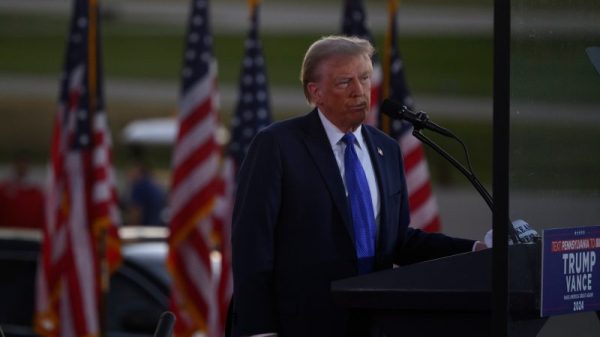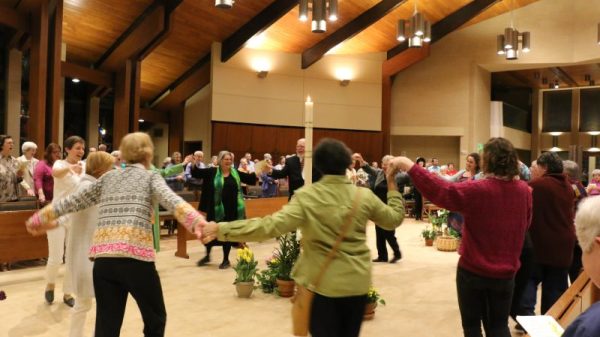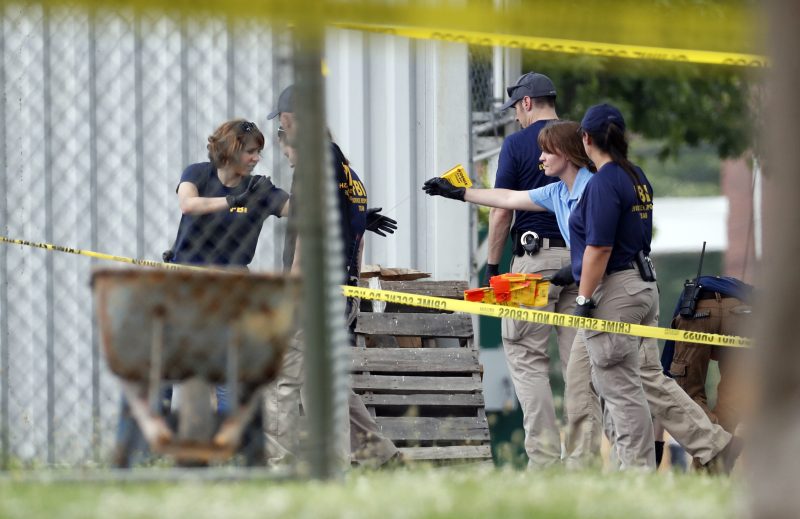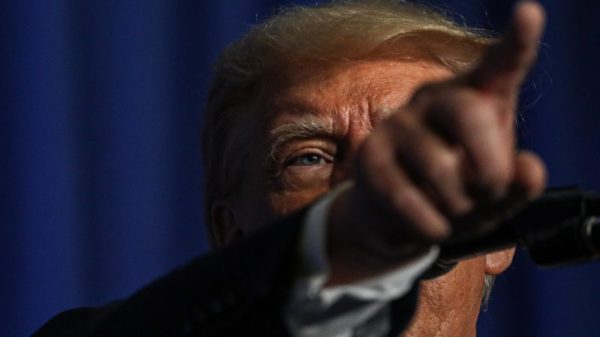Imagine the unthinkable: a mass shooting of members of Congress that leaves a large swath of the county unrepresented and shifts the balance of political power in Washington.
In the current political environment, such an outbreak of violence is not as unthinkable as it used to be, according to a bipartisan collection of House members. The attempted assassination of members at a congressional baseball team practice in 2017, the violent attack on the U.S. Capitol on Jan. 6, 2021, a dramatic spike in threats against members and, most recently, a possible second assassination attempt against former president Donald Trump highlight the need for Congress to ensure it can continue to govern in the aftermath of mass violence, they said.
To address such a scenario, these four House members — two Republicans and two Democrats — are pushing an unlikely solution: a constitutional amendment that would allow members to be replaced quickly in the event of a mass-casualty event.
In addition to ensuring uninterrupted representation for constituents, the amendment would discourage attempts to use violence to sway the balance of power in the House.
“We’ve seen a 300 percent increase in threats against members over the last seven years, according to the Capitol Police,” said Rep. Derek Kilmer (D-Wash.), one of four lawmakers pushing the issue. “In an environment where we have seen a growing tendency toward political violence, imagine — horrifically — a baseball practice where someone has bad intentions and better aim. You can literally flip a majority for three to four months. Which I think is a frightening incentive for political violence.”
According to a survey of state election officials, states need between three and four months, on average, to hold a special election to replace a deceased House member — a function of the time it takes to print ballots in addition to a federal law requiring ballots to be mailed to overseas and military voters at least 45 days ahead of an election.
“That’s actually a really long time to have a vacancy if you’re in the midst of a national crisis,” Kilmer said.
Kilmer teamed up with Reps. Brad Wenstrup (R-Ohio), William Timmons (R-S.C.), and Emanuel Cleaver II (D-Mo.) to come up with a proposal to ensure that Congress can continue its work if a large number of members are killed in a mass attack. Their proposed constitutional amendment would require each member of the House to submit the names of at least five individuals from his or her political party to their state’s governor. In the event of that representative’s death, the governor would choose a name from the list within 10 days, and the House speaker would be required to seat them immediately.
The “continuity amendment” would also deny a would-be assassin the power to flip control of the House from one party to another, Kilmer said. The interim appointee would serve only until a special election could take place.
The Constitution requires all House vacancies to be filled by election rather than with an interim appointment. It does not impose the same standard on the Senate, where states may choose to fill vacancies with a temporary appointment until a special election can take place.
Enacting a constitutional amendment is difficult, requiring a two-thirds vote of both houses of Congress as well as ratification by three-fourths of state legislatures. The last ratification took place in 1992, when the 27th Amendment was adopted, requiring that any pay raise enacted by Congress for itself may not go into effect until after the next election.
Congress should eliminate the incentive for an individual to commit political violence for the purpose of tipping the balance of power, Wenstrup argued at a Committee on House Administration subcommittee hearing on the measure Wednesday.
“A violent domestic terrorist attempted to assassinate Republican members of Congress,” Wenstrup, who treated House Majority Whip Steve Scalise (R-La.) after he was shot during the congressional baseball team attack, recalled of the shooting. “He had names in his pocket, descriptions in his pocket. This was a clear assassination attempt, and he decided to use murder or assassination as a tool for political change. He wanted to wipe out the Republican majority and change the balance of power.”
“I would contend that’s an insurrection by one person,” Wenstrup added.
Both Kilmer and Wenstrup are retiring at the end of this year, and the chances that the amendment could pass through a narrowly divided Congress is slim.
Forty constitutional amendments have been introduced since 1945, “and none of them have passed,” Rep. Stephanie Bice (R-Okla.), the chairwoman of the subcommittee, noted in her opening remarks. Bice said the track record helped explain why in the wake of the terrorist attacks of Sept. 11, 2001, Congress opted instead to change federal law requiring a state hold a special election within 49 days in the event of an extraordinary circumstance where vacancies in the House chamber exceed 100 seats.
Nine states have laws for holding special elections to fill House vacancies that are consistent with federal law that requires a special election be held within 49 days of a vacancy, according to Rebecca Gambler, director of the Government Accountability Office’s homeland security and justice division. But 41 states do not have such laws, and some officials, responding to a GAO survey, expressed concern about their ability to hold an election in such a tight time frame.
Only 27 states have responded to the survey so far, Gambler said, but some state election officials reported that “it would be difficult to select candidates within the time frame required by the law.”
Officials also noted challenges related to preparing and printing ballots, identifying polling places and poll workers, and transmitting absentee ballots to military and overseas voters,” said Gambler, who added that some election officials alternatively provided suggestions and best practices on how to hold a special election in such a tight time frame. A final report will be issued in the coming months.
“In the 21st century, it’s naive to imagine that we could never face the situation that motivates the proposal,” said Richard Primus, a constitutional law professor at the University of Michigan.
Primus added, though, that if thwarting acts of violence intended to flip the balance of power is the goal, lawmakers should also consider changing the Presidential Succession Act, which includes the speaker of the House and the president pro tempore of the Senate in the line of succession.
“It is often the case that [they] are of a different political party from the president,” he said.





























